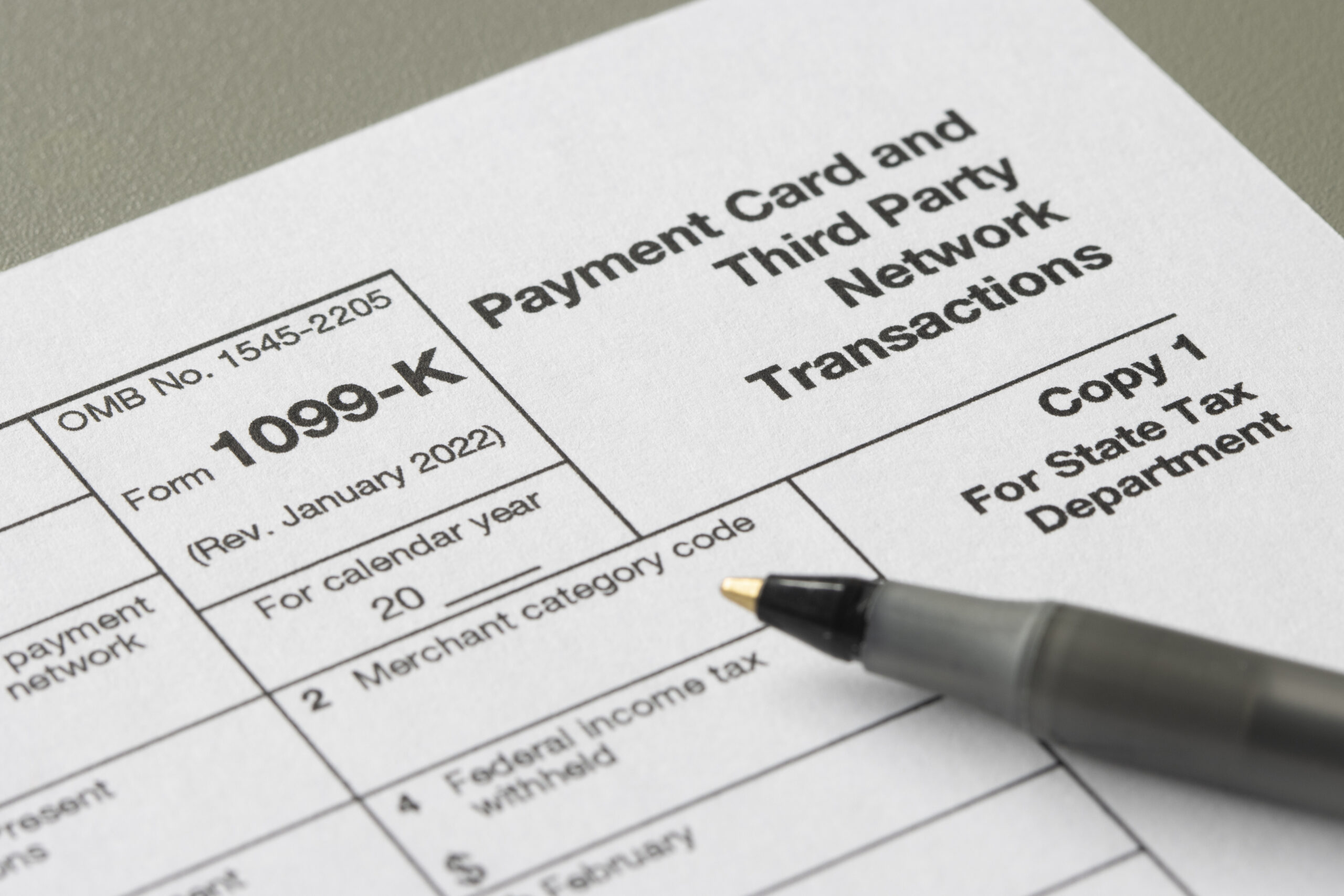Whoever said taxes aren’t that complicated?
Especially when it comes to income, where the IRS wants to make sure that virtually everything you’ve earned has been accounted for, tax-wise. As such, there are 21 different versions of Form 1099, the form that the IRS requires you to fill out when you’re federally declaring any income earned outside of a salaried position.
Form 1099s are especially important for people who are self-employed, but they are also important for anyone making money on the side. But which one? And when?
Let’s delve deeper into two of the most important, and most often confused Form 1099s: Form 1099K vs. 1099-MISC.
Understanding Form 1099K
Form 1099K is crucial for anyone earning money in the US via a third-party payment processing platform. These are the Venmos, the CashApps, the PayPals of the world.
Why third-party?
Because these payment processors are middlemen in the transaction between businesses, or between a business and a customer.
If you’re on the receiving end of any money through a third-party payment processor, the IRS will want you to declare that income via a Form 1099K.
For whom might a 1099K be relevant? Generally speaking, 1099Ks are important for online shops, for smaller fulfillment centers, dropshipping companies, or for online service providers that accept payments for services rendered via an online payment processing platform.
Other examples listed by the IRS include transactions that meet the threshold for payments received for the following goods and services:
- Auction sites
- Car sharing
- Real estate
- Ticket exchange/resale
- Crowdfunding
- Freelance work
- Craft markets (i.e. Etsy.com)
Does everyone who’s ever received a dime via PayPal for any mundane transaction need to fill out a Form 1099K?
Thankfully, no – it’s not that strict.
There is a threshold that you need to have reached to qualify for a Form 1099K, and that threshold is a gross payment amount of more than $600. This doesn’t count gifts, reimbursements for payments made in cash (or otherwise) for expenses made for friends and family, such as sharing a meal, or covering someone else’s household bill.
If you’ve received a Form 1099K, it should already be filled out with the relevant information provided by the payment provider that has sent it to you.
Form 1099Ks are important for you to file along with your other tax returns, but they’re generally already filled out if you’re on the receiving end of the payment transaction.
Your job is to review the information and make sure it’s correct before sending your copy over to the IRS. The information provided on Form 1099K will also be important for when you report your income on any tax returns that you fill out, yourself.
Another important box to check is the adjustment box. Payment providers can help fill in your gross payment amounts, but you’ll need to review how much of that income is deductible (based on fees, costs, refunds, and so on). It can be a lot of work if you’re just making a few bucks on the side, which is why the gross payment threshold exists.
In previous years, the annual threshold before a Form 1099K would become relevant was $20,000 across 200 or more transactions – this was changed starting January 2023.
Understanding Form 1099-MISC
Now that you’re an expert on Form 1099K, let’s take a look at Form 1099K vs. 1099-MISC.
Form 1099-MISC is relevant for anyone who has received what the IRS deems “miscellaneous income”, at a threshold of $600.
Isn’t this just the same as Form 1099K? Well, no.
An important difference when looking at Form 1099K vs. 1099-MISC is that it only incomes forms of compensation that aren’t channeled through a third-party payment processor. This means cash prizes, proceeds to an attorney, rental payments made directly to you, royalty payments, monetary awards, or freelancers and independent contractors who get paid directly rather than through a third-party payment processor.
Form 1099K vs 1099-MISC: What are the Differences?
The central difference is whether the income was processed by a third-party payment processor or received directly in the form of cash or a wire transfer by someone who isn’t your employer.
The threshold for both forms is the same, for a gross total of $600 or more per entity, per tax year.
Who Uses Form 1099K vs. 1099-MISC?
Freelancers and Independent Contractors
In this scenario, individuals working as freelancers or independent contractors often receive both 1099-K and 1099-MISC forms, depending on the nature of their income sources.
For example, a graphic designer who works with various clients directly might receive a 1099-MISC from each client who paid them over $600 for services rendered.
On the other hand, if the same graphic designer also sells digital products on an online platform, they might receive a 1099-K from the platform if their earnings exceed the specific threshold.
E-commerce Sellers and Payment Processors
E-commerce sellers who operate their businesses through online marketplaces may receive a 1099-K from the payment processor, such as PayPal or Stripe, if their sales transactions meet the IRS threshold.
Additionally, they might receive a 1099-MISC from individual customers or business clients for services rendered or non-sales-related income.
Gig Economy Workers and Platform Users
Participants in the gig economy, such as ride-sharing drivers or food delivery couriers, may receive a 1099-K from a platform that aggregates their earnings, like Uber or DoorDash.
At the same time, they might receive 1099-MISC forms for bonuses, incentives, or other non-ride-related income from the platform or third parties.
In each of these scenarios, individuals may receive both 1099-K and 1099-MISC forms if they have multiple income sources or engage in diverse types of work.
Being aware of the specific requirements for each form will help taxpayers accurately report their income and avoid potential IRS scrutiny or penalties.
Let us help you work out which receipt goes where, and what information fills into what return, and whether you need Form 1099K vs. 1099-MISC.
Managing a side business can be incredibly frustrating in its own right – it can become a greater headache when tax season rolls around.
Avoid these issues by working with the right people, here at Rush Tax Resolution.











